‘We get people from all over’: the foreign legion fighting for Ukraine
The ‘world’s deadliest sniper’, a Latvian MP and a former Georgian defence minister are among 20,000 volunteers who have travelled to Ukraine to fight Russia’s invasion.
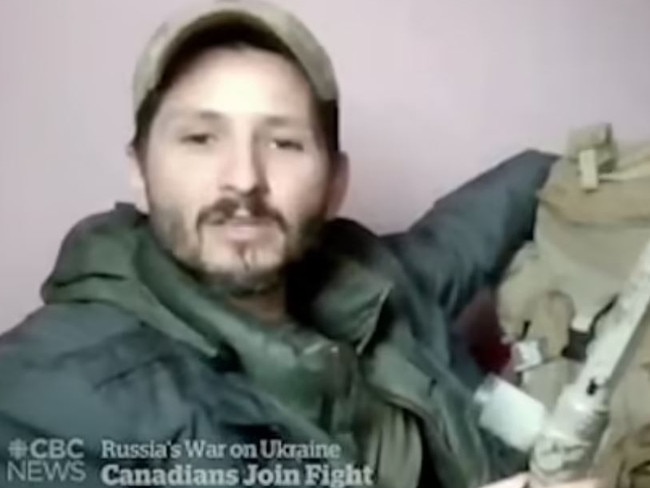
In happier times, Anton Bondarenko gave online English lessons. Now he is an unlikely but vital cog in Ukraine’s war machine.
From the bedroom of the modest flat in central Kyiv that he shares with his mother, Bondarenko, 22, and 100 or so of his colleagues elsewhere in the capital form a virtual call centre. Their task? Fielding inquiries from people across the world who have answered an appeal by President Zelensky to join a new Ukrainian foreign legion to help repel the invaders.
“We get people from all over,” said Bondarenko, who for now, at least, still ignores the air raid sirens that sound five or six times a day. “Probably the largest number are from America. But also from Australia, Turkey, France. Everywhere.”
In an echo of the International Brigades that drew fighters from across the world to fight on the Republican side in the Spanish civil war, nearly 20,000 men from 52 countries had volunteered to fight in Ukraine by last weekend, Dmytro Kuleba, the foreign minister, said.
Thousands more are thought to have enlisted in the days since, their determination intensified by the growing brutality of the war unleashed by Vladimir Putin.
The arrival of the volunteers provides a much needed boost for Ukrainian morale: especially welcome are military veterans from the British or other western armies with experience of recent conflicts in the Middle East or Afghanistan.
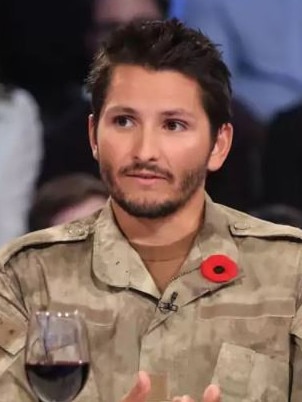
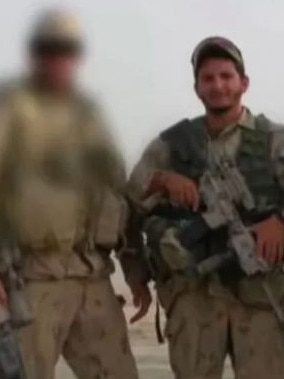
One of the arrivals is “Wali”, a computer scientist from Montreal who was dubbed the world’s deadliest sniper after his service with the Royal Canadian 22nd Regiment in Afghanistan, Syria and Iraq, where he reportedly killed as many as 40 people a day - in one case from a record 3,540 metres.
Also in action are Irakli Okruashvili, a former Georgian defence minister, who within days of his arrival in Ukraine reportedly helped his unit capture a powerful Russian BMP-2 infantry fighting vehicle, and Juris Jurass, a member of the Latvian parliament and former policeman.
Yet there are concerns the conflict also risks attracting young adventure-seekers whose only experience of battle is on a computer screen in their bedroom. “War is a great recruiting sergeant,” said General Sir Richard Barrons, Britain’s former commander of Joint Forces Command. “If people have solid military experience and some personal equipment and only need arming, then they can become an asset to the Ukrainians. But if they’re only turning up because they fancy it and are really good at Call of Duty, then they will be a burden.”
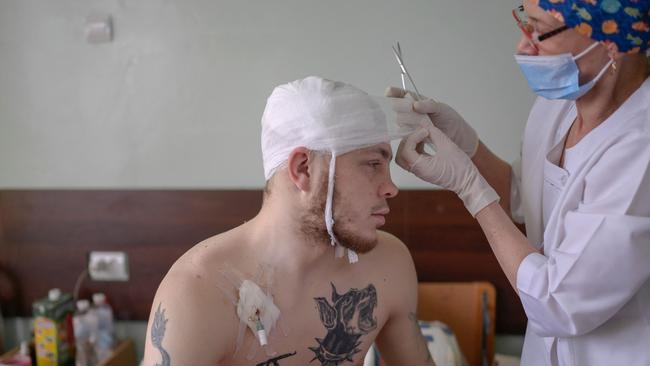
For those enlisting, the road to war begins at the Ukrainian embassy in their home country, to which those who contact Bondarenko’s call centre or get in touch online are asked to report.
After their details are taken, they are interviewed by the defence attache to judge their suitability to join the new formation, known formally as the International Legion of Territorial Defence of Ukraine. If accepted, they are advised to travel to one of five Polish cities, from where volunteers will help them reach the border.
Among eight would-be recruits encountered last Thursday by The Sunday Times outside Ukraine’s white stucco-fronted mission in Holland Park, west London, was John, 61, a former Royal Engineer spurred into signing up by Russia’s bombing the previous day of a maternity hospital in Mariupol. With 18 years in the army, including stints in the first Gulf war and in the Balkans, he sees defending Ukraine against Russia as a cause “worth fighting for” - just as fighting fascism was for those who went to Spain in the 1930s.
“The maternity hospital in Mariupol really had a big impact,” he said. “All these stories of people’s lives being destroyed.” He feared he might be barred from joining because he is too old, “but I’ll find out”.
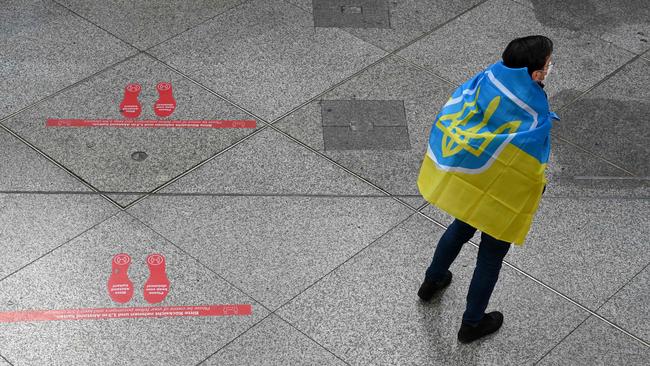
Alan, 52, a former Para who works in Southampton mooring boats on the Solent, had also packed his kitbag. “I can’t sit at home and watch these evil people do this,” he said. “If it’s down to the people of every other country to go in there and push Russia back, then so be it.”
Among those helping the arrivals when they reach Ukraine is Chris Garrett, 38, a former British army soldier based near the western Ukrainian city of Lviv. Nicknamed “Swampy” because of his work as a tree surgeon in civilian life, he went to fight the pro-Russian separatists in the Donbas region of eastern Ukraine in September 2014 and stayed there for three years, on and off, before returning to his native Isle of Man.
“When Zelensky said he would accept foreigners with military experience, my phone kind of exploded with hundreds of messages from people wanting to join,” he said. “And it got to the stage where I realised that if I was going to help bring people into the country, then I should be on the ground myself. My phone hasn’t stopped ringing for 12 days.”
Garrett, who works with another British army veteran who gave his name only as Tony, has based himself alongside the Georgian National Legion, which was founded in 2014 in the Donbas by ethnic Georgians to fight the separatists and has since been incorporated into the 62nd brigade of the Ukrainian territorial defence force.
Over the past week he has personally welcomed 50 or so Britons, a few of whom have gone on to join the new international force, which is still in the process of being set up. Most have opted instead to go with the Georgians, whose legion has always been open to foreign fighters.
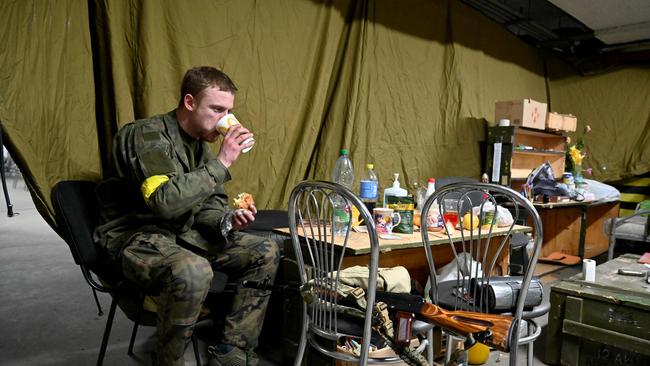
Before potential recruits who contact him set off from Britain, Garrett vets them to make sure they are not serving soldiers or barred for other reasons from fighting for Ukraine. He also establishes whether they have useful military skills.
“It doesn’t take long to pick out the people that have come here because they play too many computer games,” he said. “And we then ask them to leave because they become more of a hindrance to us and a threat to the other people they are working with.”
“People have got to think what they can offer,” chipped in Tony. “It’s not enough thinking ‘I’m a strong lad’. If you don’t have any military or battlefield experience then you can become a liability and you can’t then turn round and say ‘I want to go home now’. It doesn’t work like that.”
Both men insisted that anyone coming should be in no doubt about the heavy fighting they are likely to face, which is more reminiscent of Second World War battles than more recent military campaigns.
“Even those who have served in the British army have never seen a conflict like this,” Garrett said. “There are cruise missiles being thrown at us, airstrikes. This isn’t Afghanistan or Iraq. It is very different.”
Ultimately, the main value of foreign fighters may be the symbolism: the Spanish civil war is celebrated for the involvement of writers such as George Orwell, who wrote Homage to Catalonia about his experiences fighting the fascists, and Ernest Hemingway, who wrote For Whom the Bell Tolls. Less well known is that the casualty rates among members of the International Brigades were considerably higher than for Spanish fighters, blamed on a lack of training, poor leadership and their use as shock troops.
THE SUNDAY TIMES


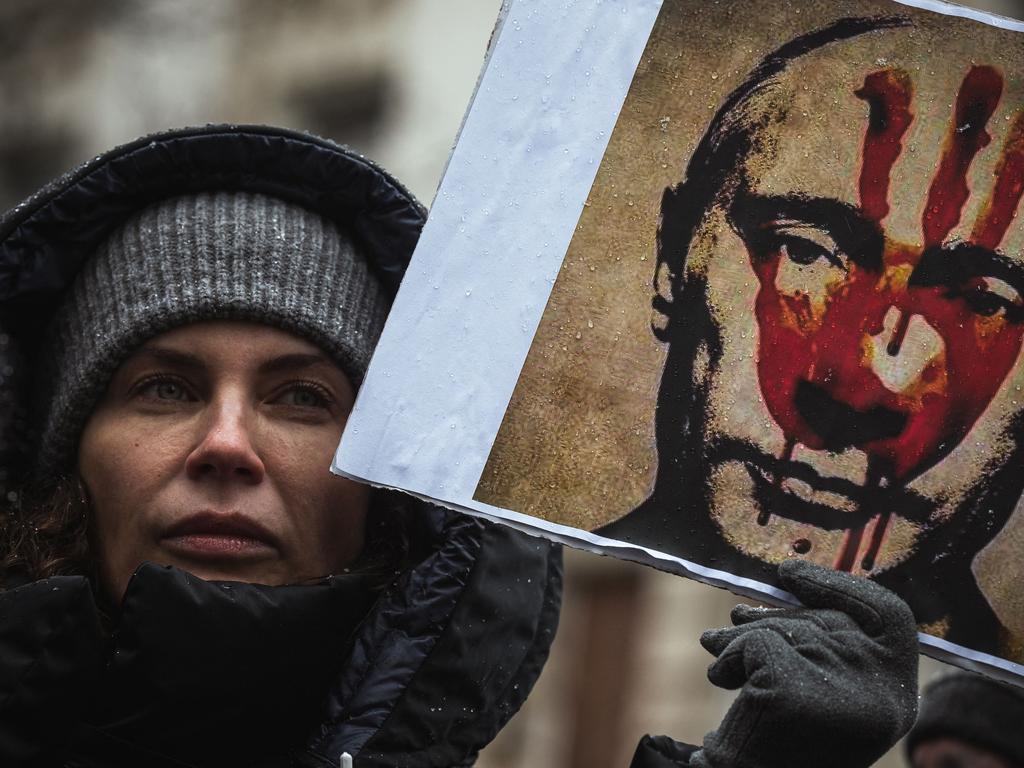
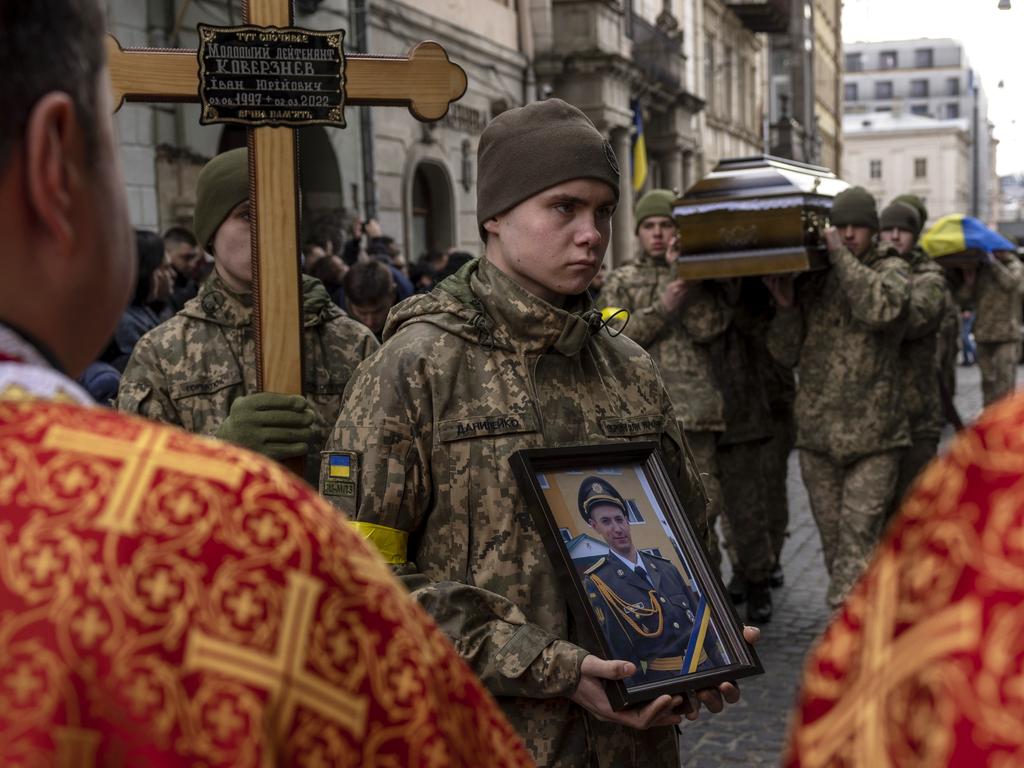
To join the conversation, please log in. Don't have an account? Register
Join the conversation, you are commenting as Logout